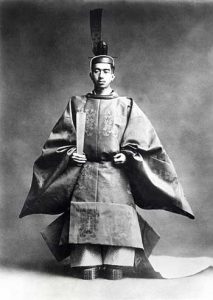If you wish, you can hear the sermon as it was preached from the UCJ pulpit. Simply click the play button below:
Delivered at the United Church of Jaffrey
October 29th, 2017
Matthew 22:34-46; 1 Thessalonians 2:1-8
One day, when I was visiting El Salvador in 2015, my group of Yale Divinity School students was received by a group of women in a ramshackle shantytown community on the outskirts of San Salvador.
We ate and prayed with these women – a group of tired looking old ladies who had formed a non-profit collective to fund the digging of a well that provided potable water
You may recall, I recently preached about them from this pulpit.
I return to them, this morning, because I remember something one of the old ladies said.
Asked about her memory of Archbishop Oscar Romero, the woman said
“When Romero was with us, Jesus Christ walked with us, here in El Salvador.”
I remember this clearly, because I remember being challenged by the idea.
It would be one thing to say that Archbishop Romero was a great man.
That he was a martyr.
That he lived to serve the poor.
All these things are true.
But is it OK to say that “When Romero was with us, Jesus Christ walked with us, here in El Salvador.”?
Each night that we were in El Salvador, the group would gather around a table to discuss the events of the day.
That night, as I anticipated one of the students was upset.
One of her strong faith commitments was the insistence Christ is, and will always be, the only person in the history of the human race, who was both human and divine – God among us.
And for this reason, it was Christ alone, who’s sacrifice could lead us to salvation.
So her faith was challenged in El Salvador.
In El Salvador, Christianity is deeply embedded in culture – it is a part of people’s lives in a way that we Christians in America might feel jealous of.
But it is lived in a different way.
There are, for example, more pictures and paintings and murals that depict Archbishop Oscar Romero, than there are depictions of Jesus.
Romero himself once said the following words to a Guatemalan reporter:
“I have often been threatened with death…If they kill me, I shall arise in the Salvadoran people. If the threats come to be fulfilled, from this moment I offer my blood to God for the redemption and resurrection of El Salvador. Let my blood be a seed of freedom and the sign that hope will soon be reality.”
Two weeks after uttering these words, Romero was indeed killed – assassinated while he was in the midst of serving holy communion, by the military forces that he had been actively condemning.
Oscar Romero has become a beloved figure for the poor people of El Salvador, as well as Christians all over the world who believe that equity and social justice as part of Christ’s call.
But for my friend who sat across the table that night, beneath the palm fronds in the hotel courtyard in San Salvador, Oscar Romero’s quote was just going too far.
When Romero said: “I offer my blood to God for the redemption and resurrection of El Salvador” was he not taking on a debt that, Christian’s believe, is reserved for Christ alone?
It’s a good question.
Romero was a great man.
But did he claim too much?
It’s confusing!
Make no mistake…
Confusing the “divine” and “human” can be a dangerous proposition!
My father, who was born Tokyo in 1929 knew all about that.
The most casual student of world history can tell you that being born in Tokyo in 1929 was bad luck.
It was bad luck because the emperor of Japan at that time – Emperor Hirohito, claimed to be the direct descendant of the Shinto goddess of the moon.
This claim would not have meant much to anyone if it hadn’t also been the case that Japan was sitting on one of the most powerful modern navies in the world, and they were spoiling to use it.
It turns out, a God-emperor is a handy fellow to have around if you want to start a war of aggression.
The God emperor says, “It is our divine duty to unite East Asia in a great sphere of co-prosperity” and soon enough, the warships are steaming their way across the Sea of Japan toward Korea and China.
The historian John Dower says that between 1937 and 1945, Japan’s imperialist ambitions claimed the lives of more than 10 million people in China alone.
That’s more than the current population of New York City.
In theological terms, than, the “confusion” that we have been talking about this morning, has the potential to be the most murderous of history’s confusions.
Emperor Hirohito demonstrated this.
The example that I have lifted up from the ashes of history is one that effected my father, and is therefore, close to my heart. The pre-war Japanese were not Christian – but sadly, as we all know, we cannot absolve Christians from guilt when it comes to violence perpetrated in the name of God.
Imperialism and colonialism was often done with the sword in one hand and the Bible in the other.
To claim to be God, is to claim ultimate power – a claim that, almost inevitably ends in terrible bloodshed.
Is there ever a situation in which this confusion – confusing the human and the divine is OK?
*
If we are to answer this question by looking at the Bible, we find a strong message, but also a pervasive undercurrent.
The strong message is quite clear.
Idolatry – treating something as Divine, that is not divine, is a sin.
The first two commandments that Moses brought down from the mountain, are:
“You shall have no other Gods before me…”
and
“You shall not make for yourself a carved image…”
No confusion here. The matter is stated quite clearly.
But there is pervasive undercurrent in the Bible that blurs this certainty.
When Jacob is attacked by a stranger in the night… is the attacker is a man or an Angel, or even God? The text is not clear.
When three strangers come to Abraham at the Oaks of Mamre the text first calls them “Men” but later identifies them as God.
Confusing!
And most importantly, our savior and friend Jesus.
The whole New Testament moves back and forth between characterizing him as a man, and deifying him as God.
Which brings us to our gospel lesson today which comes from the 22nd chapter of Matthew.
A lawyer, who wants to test Jesus asks him:
“Teacher, which is the great commandment in the law?”
To which Jesus replies:
“You shall love the Lord your God with all your heart, and with all your soul, and with all your mind. This is the great and first commandment.
But, significantly, Jesus does not stop there. He then adds:
And a second is like it, You shall love your neighbor as yourself.
Jesus, here, is setting up a significant relationship between these two commandments.
In case this relationship is not perfectly clear to his listeners, Jesus goes on to say:
On these two commandments depend all the law and the prophets.”
Let this not be lost on us.
The two most important commandments according to Jesus, involve the love of God, and the love of neighbor.
The greatest commandment is barely out of his mouth before he adds the second.
Love of God, love of Neighbor.
Surely in these, the two most important commandments, Jesus is telling us that the love of God and the love of neighbor are related.
If we discover the love of God through our experience of the love of neighbor, isn’t Jesus kind of advocating a certain kind of confusion?
A confusion between the love of humans, and the love of God?
I call this confusion “glorious confusion.”
The apostle Paul, too, in his first letter to the Thessalonians, used gloriously confusing language:
But we were gentle among you, he wrote, like a nurse taking care of her children. So, being affectionately desirous of you, we were ready to share with you not only the gospel of God but also our own selves, because you had become very dear to us.
To become Christian communities, Paul seems to advise – is not only a matter of reading and interpreting the gospel –
It is a matter of loving
Loving as a nurse cares for her child.
*
None of us like being confused.
Confusion, for most of us, is a state of anxiety, that we like to abolish with the appearance of certainty.
But perhaps there is a kind of confusion – a glorious confusion, that helps us to get close to God.
In a 1974 interview, Mother Teresa said:
“I see God in every human being. When I wash leper’s wounds I feel I am nursing the Lord himself. Is it not a beautiful experience?”
If the divine/human confusion is exploited to consolidate a leader’s position of power – that is idolatry. It is a dangerous confusion – the most dangerous confusion.
But when the Divine/human confusion helps us find the strength to wash the lepers wounds – that is compassion. It is a glorious confusion – the most glorious confusion.
Amen.



